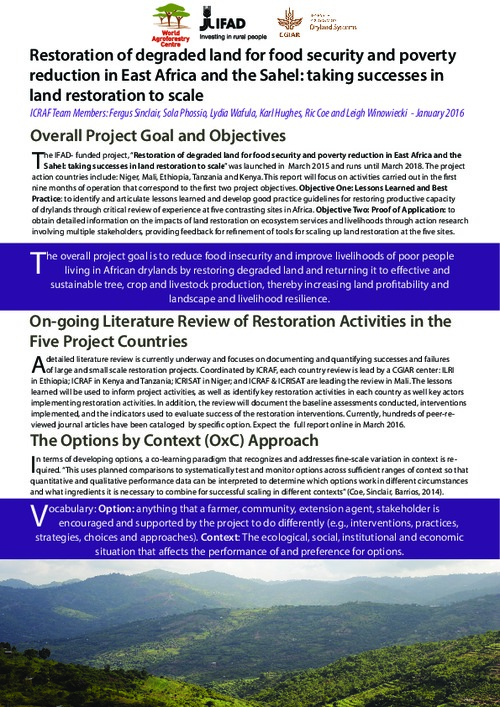Understanding Long-Term Impacts in the Forest Sector
The international development community
is increasingly demanding better evidence on the
effectiveness of policies and programs across different
sectors. The forest sector is no exception. Governments and
donor agencies explicitly seek to link investment to proven
impact. Yet the evidence base necessary to inform
interventions in the forest sector that can successfully
enhance the livelihoods of the forest-dependent poor, foster












